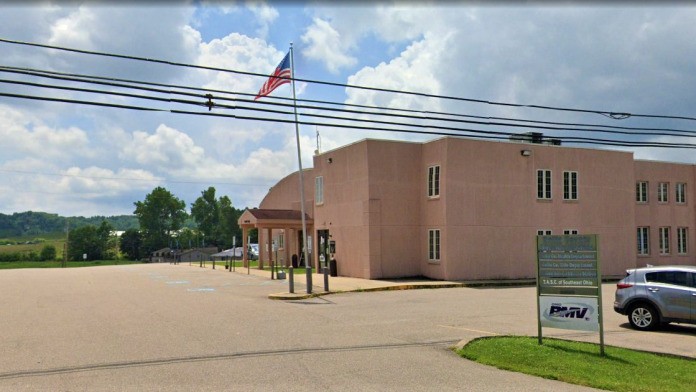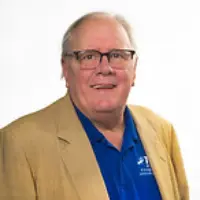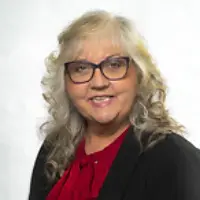About TASC of Southeast Ohio
TASC (Treatment Alternatives to Street Crime) of Southeast Ohio is located in Gallipolis, Ohio. It’s an OhioMHAS-certified provider of substance use treatment services. The agency primarily assists individuals facing substance-related legal issues, acting as a vital link between the criminal justice system and addiction treatment services. They identify individuals with substance use offenses, conduct thorough assessments and connect them with the most appropriate treatment options.
Care Coordination in Gallipolis
TASC partners with judges, probation officers, jail administrators and local care providers to ensure seamless programming. They seek to improve individual quality of life, strengthen families and promote safer communities through prevention, intervention and high-quality substance use treatment. TASC also welcomes individuals not involved in the justice system.
The agency operates nine facilities across Southeast Ohio, serving six counties including Gallia County. Located on Jackson Pike in Gallipolis, this outpatient clinic sits just a short walk southeast of Our House Tavern Museum, the Gallia County Historical Society and the scenic Gallipolis City Park. It offers low-cost treatment or intervention support for adolescents, transitional-age youth and adults seeking freedom from substance use challenges including those referred by the court.
They accept Ohio Medicaid and use grant money to offset treatment costs when available. The agency really goes above and beyond to give people a chance at a fresh start, especially those facing legal challenges. All you need is a commitment and willingness to attend services. They even provide transportation assistance for those without access to their own vehicles.
Assessment, Treatment Support and Case Management
TASC provides comprehensive substance use assessments, often used in pre-sentence investigations to help judges determine whether treatment is needed. This assessment also helps determine the appropriate level of care and guides the development of a personalized treatment plan.
As part of this tailored plan, you’ll receive therapeutic support designed to help you manage triggers by developing robust coping skills that foster resilience and long-term abstinence.
Whether you choose standard outpatient care or a more intensive outpatient program, both options are tailored to support you with consistent and personalized care. Urinalysis testing is used to monitor progress and compliance with treatment guidelines.
Through case management, you’ll receive coordinated support to connect with resources that help address barriers like housing, medical care and employment. This ensures seamless access to resources that promote lasting stability and well-being.
Rehab Score
Gallery


Accepted Insurance
Other Forms of Payment
Medicaid is a state based program that helps lower-income individuals and families pay for healthcare. Medicaid covers addiction treatment so those enrolled can use their coverage to pay for rehab. When a program accepts Medicaid the client often pays very little or nothing out of their own pocket.
Self-pay involves paying for treatment out of your own pocket. You can use savings or credit, get a personal loan, or receive help from family and friends to fund your treatment. If you don't have insurance or your insurance plan doesn't cover a specific program, self-pay can help ensure you still get the care you need.
Financial aid can take many forms. Centers may have grants or scholarships available to clients who meet eligibility requirements. Programs that receive SAMHSA grants may have financial aid available for those who need treatment as well. Grants and scholarships can help you pai for treatment without having to repay.
Military members, veterans, and eligible dependents have access to specific insurance programs that help them get the care they need. TRICARE and VA insurance can help you access low cost or no cost addiction and mental health treatment. Programs that accept military insurance often have targeted treatment focused on the unique challenges military members, veterans, and their families face.
Addiction Treatments
Levels of Care
Outpatient Programs (OP) are for those seeking mental rehab or drug rehab, but who also stay at home every night. The main difference between outpatient treatment (OP) and intensive outpatient treatment (IOP) lies in the amount of hours the patient spends at the facility. Most of the time an outpatient program is designed for someone who has completed an inpatient stay and is looking to continue their growth in recovery. Outpatient is not meant to be the starting point, it is commonly referred to as aftercare.
Intensive Outpatient Programs (IOP) are for those who want or need a very structured treatment program but who also wish to live at home and continue with certain responsibilities (such as work or school). IOP substance abuse treatment programs vary in duration and intensity, and certain outpatient rehab centers will offer individualized treatment programs.
Treatments
The goal of treatment for alcoholism is abstinence. Those with poor social support, poor motivation, or psychiatric disorders tend to relapse within a few years of treatment. For these people, success is measured by longer periods of abstinence, reduced use of alcohol, better health, and improved social functioning. Recovery and Maintenance are usually based on 12 step programs and AA meetings.
Drug rehab in Ohio provides comprehensive treatment to address the physical and psychological needs of those struggling with substance use disorders. This may involve inpatient and/or outpatient care.
Many of those suffering from addiction also suffer from mental or emotional illnesses like schizophrenia, bipolar disorder, depression, or anxiety disorders. Rehab and other substance abuse facilities treating those with a dual diagnosis or co-occurring disorder administer psychiatric treatment to address the person's mental health issue in addition to drug and alcohol rehabilitation.
Opioid rehabs specialize in supporting those recovering from opioid addiction. They treat those suffering from addiction to illegal opioids like heroin, as well as prescription drugs like oxycodone. These centers typically combine both physical as well as mental and emotional support to help stop addiction. Physical support often includes medical detox and subsequent medical support (including medication), and mental support includes in-depth therapy to address the underlying causes of addiction.
Substance rehabs focus on helping individuals recover from substance abuse, including alcohol and drug addiction (both illegal and prescription drugs). They often include the opportunity to engage in both individual as well as group therapy.
Programs
Adult rehab programs include therapies tailored to each client's specific needs, goals, and recovery progress. They are tailored to the specific challenges adult clients may face, including family and work pressures and commitments. From inpatient and residential treatment to various levels of outpatient services, there are many options available. Some facilities also help adults work through co-occurring conditions, like anxiety, that can accompany addiction.
Clinical Services
Group therapy is any therapeutic work that happens in a group (not one-on-one). There are a number of different group therapy modalities, including support groups, experiential therapy, psycho-education, and more. Group therapy involves treatment as well as processing interaction between group members.
Trauma therapy addresses traumatic incidents from a client's past that are likely affecting their present-day experience. Trauma is often one of the primary triggers and potential causes of addiction, and can stem from child sexual abuse, domestic violence, having a parent with a mental illness, losing one or both parents at a young age, teenage or adult sexual assault, or any number of other factors. The purpose of trauma therapy is to allow a patient to process trauma and move through and past it, with the help of trained and compassionate mental health professionals.
Staff

Stephen K. Thomas, BS, CCJS, LICDC-CS
CEO

Darla Merola, BS, LCDC III
Deputy CEO

Shelly Neff, MSW, LICDC
Clinical Supervisor
Contact Information
499 Jackson Pike
P. O. Box 88
Gallipolis, OH 45631
